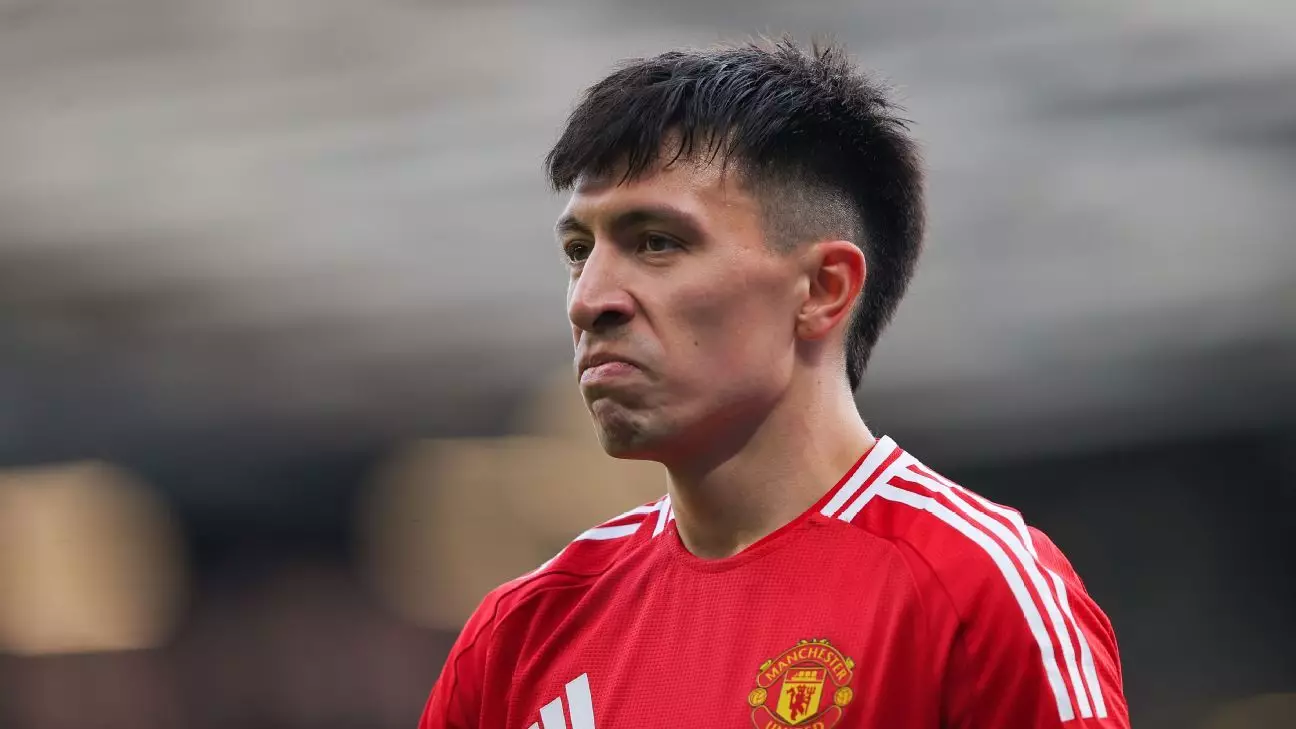The ongoing turmoil at Manchester United has not only sparked conversations among fans and analysts but has also led to some sharp public exchanges. One prominent voice in this discourse is that of former United player Paul Scholes, who recently questioned the capabilities of current defenders like Lisandro Martínez and Matthijs de Ligt. Scholes’ critical remarks come at a time when Manchester United is languishing in 13th place in the Premier League, trailing significantly behind the top teams. Such discussions highlight the frustration surrounding the club’s performance and raise questions about its current roster.
In a candid assessment on The Overlap, Scholes made a bold claim that Lisandro Martínez is “not good enough to win the Premier League,” igniting a fierce reaction from the Argentine defender. Scholes’ criticism seemed to stem from his broader concerns regarding the overall quality of the squad, stating, “Even when he’s fit, he’s not good enough.” This is a stinging indictment from a club legend who has seen the ups and downs of the team throughout his career. Martínez, who recently suffered an ACL injury rendering him unavailable for the rest of the season, took to social media to deliver a pointed retort, casting doubt on Scholes’ relevancy by implying that a player of Scholes’ caliber would struggle in modern football.
The pressure surrounding Manchester United is palpable, especially as they flounder in the league standings. With 14 points separating them from a Champions League spot, fans and critics alike are growing restless and demanding immediate improvements. Scholes’ critique extends beyond just Martínez; he also voiced his concerns about other defenders, notably Matthijs de Ligt, questioning his journey through several prestigious clubs and insinuating that he’s not the player he once was. This line of reasoning suggests that Scholes believes the current roster lacks the hunger and tenacity needed to compete at the highest levels, manifesting a genuine worry about Manchester United’s ambitions.
As the team prepares to face Tottenham Hotspur, another club trying to find its footing this season, the stakes are incredibly high. A win could alleviate some pressure and bolster confidence, while a poor performance might deepen the crisis narrative. Martínez’s injury compounds the challenges facing the backline, making it crucial for other defenders to rise to the occasion. The juxtaposition of Scholes’ historical prestige with the current players’ ambitions reflects a broader narrative concerning Manchester United: the expectations of glory versus the reality of hard work and commitment.
Ultimately, the debate encapsulates not only the current struggles of Manchester United but also the importance of leadership—both on and off the pitch—as they seek to redefine their identity in a competitive league filled with formidable opponents.

